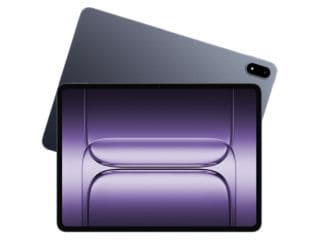Google Introduces Med-Gemini Family of Multimodal Medical AI Models, Claimed to Outperform GPT-4
Google claims Med-Gemini will provide more factually accurate, reliable, and nuanced web search results compared to Gemini.

Photo Credit: Pexels/Pixabay
Google says the Med-Gemini AI models have medical education and biomedical research capabilities
Google introduced its new family of artificial intelligence (AI) models focused on the medical domain on Tuesday. Dubbed Med-Gemini, these AI models are not available for people to use, but the tech giant has published a pre-print version of its research paper which highlights its capabilities and methodologies. The company claims that the AI models surpass GPT-4 models in benchmark testing. One of the notable features of this particular AI model is its long-context abilities that allow it to process and analyse health records and research papers.
The research paper is currently in the pre-print stage and is published on arXiv, an open-access online repository of scholarly papers. Jeff Dean, Chief Scientist, Google DeepMind and Google Research, said in a post on X (formerly known as Twitter), “I'm very excited about the possibilities of these models to help clinicians deliver better care, as well as to help patients better understand their medical conditions. AI for healthcare is going to be one of the most impactful application domains for AI, in my opinion.”
Med-Gemini is built on Gemini-1.0/1.5 & can be easily adapted to new medical modalities with custom encoders. We showcase Med-Gemini's promise in accurate multimodal dialogue🗣️🖼️ with examples of high-quality conversations about radiology & dermatology images, noting that… pic.twitter.com/VSdU3fvijk
— Alan Karthikesalingam (@alan_karthi) April 30, 2024
Med-Gemini AI models are built on top of Gemini 1.0 and Gemini 1.5 LLM. There are a total of four models — Med-Gemini-S 1.0, Med-Gemini-M 1.0, Med-Gemini-L 1.0, and Med-Gemini-M 1.5. All of the models are multimodal and can provide text, image, and video outputs. The models are also integrated with web search, which the company claims has been improved through self-training to make the models “more factually accurate, reliable, and nuanced” when showing results for complex clinical reasoning tasks.
Further, the AI model is fine-tuned for improved performance during long-context processing, claims the company. A higher quality long-context processing would mean the chatbot can provide more accurate and pinpointed answers even when the questions are not perfectly queried or when it has to process a long document of medical records.
As per data shared by Google, Med-Gemini AI models have outperformed OpenAI's GPT-4 models in the GeneTuring dataset on text-based reasoning tasks. Med-Gemini-L 1.0 has also scored 91.1 percent accuracy on MedQA (USMLE), even outperforming its own older model Med-PaLM 2 by 4.5 percent. Notably, the AI model is not available in public or in beta testing. The company likely will improve the model further before bringing it into the public domain.
For the latest tech news and reviews, follow Gadgets 360 on X, Facebook, WhatsApp, Threads and Google News. For the latest videos on gadgets and tech, subscribe to our YouTube channel. If you want to know everything about top influencers, follow our in-house Who'sThat360 on Instagram and YouTube.
Related Stories
- Samsung Galaxy Unpacked 2025
- ChatGPT
- Redmi Note 14 Pro+
- iPhone 16
- Apple Vision Pro
- Oneplus 12
- OnePlus Nord CE 3 Lite 5G
- iPhone 13
- Xiaomi 14 Pro
- Oppo Find N3
- Tecno Spark Go (2023)
- Realme V30
- Best Phones Under 25000
- Samsung Galaxy S24 Series
- Cryptocurrency
- iQoo 12
- Samsung Galaxy S24 Ultra
- Giottus
- Samsung Galaxy Z Flip 5
- Apple 'Scary Fast'
- Housefull 5
- GoPro Hero 12 Black Review
- Invincible Season 2
- JioGlass
- HD Ready TV
- Laptop Under 50000
- Smartwatch Under 10000
- Latest Mobile Phones
- Compare Phones
- Vivo Y300 GT
- Samsung Galaxy F56 5G
- Realme C75 5G
- Lava Yuva Star 2
- Vivo Y19 5G
- iQOO Z10 Turbo Pro
- iQOO Z10 Turbo
- CMF by Nothing Phone 2 Pro
- Alienware 16X Aurora
- Alienware 16 Aurora
- Amazon Amazon Kindle Paperwhite (12th Gen)
- Lenovo Legion Y700 4th Gen
- boAt Storm Infinity Plus
- Moto Watch Fit
- Xiaomi QLED TV FX Pro (55-inch)
- Xiaomi QLED TV FX Pro
- Asus ROG Ally
- Nintendo Switch Lite
- Toshiba 1.8 Ton 5 Star Inverter Split AC (RAS-24TKCV5G-INZ / RAS-24TACV5G-INZ)
- Toshiba 1.5 Ton 5 Star Inverter Split AC (RAS-18PKCV2G-IN / RAS-18PACV2G-IN)

















